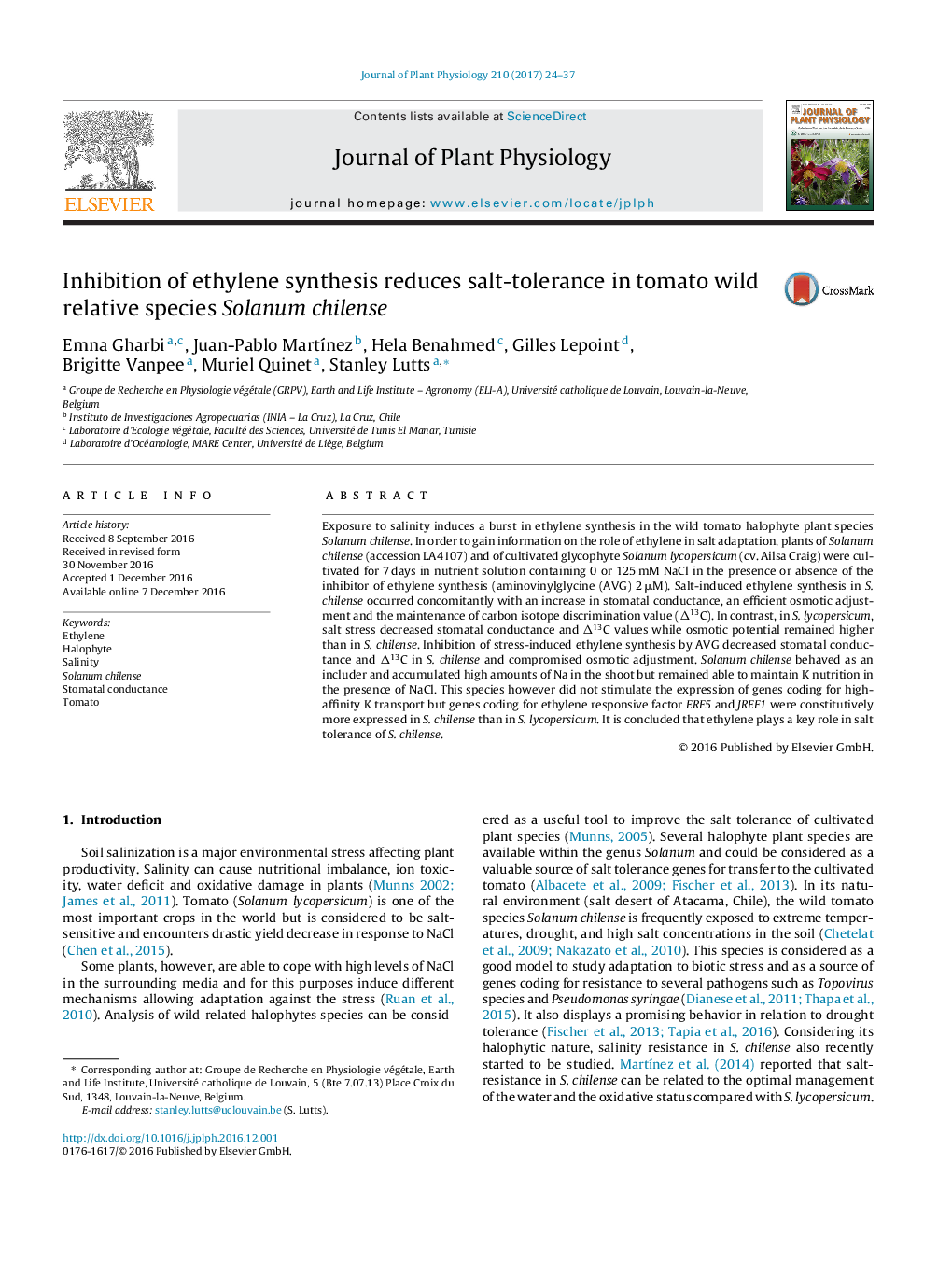| Article ID | Journal | Published Year | Pages | File Type |
|---|---|---|---|---|
| 5518045 | Journal of Plant Physiology | 2017 | 14 Pages |
Exposure to salinity induces a burst in ethylene synthesis in the wild tomato halophyte plant species Solanum chilense. In order to gain information on the role of ethylene in salt adaptation, plants of Solanum chilense (accession LA4107) and of cultivated glycophyte Solanum lycopersicum (cv. Ailsa Craig) were cultivated for 7 days in nutrient solution containing 0 or 125 mM NaCl in the presence or absence of the inhibitor of ethylene synthesis (aminovinylglycine (AVG) 2 μM). Salt-induced ethylene synthesis in S. chilense occurred concomitantly with an increase in stomatal conductance, an efficient osmotic adjustment and the maintenance of carbon isotope discrimination value (Î13C). In contrast, in S. lycopersicum, salt stress decreased stomatal conductance and Î13C values while osmotic potential remained higher than in S. chilense. Inhibition of stress-induced ethylene synthesis by AVG decreased stomatal conductance and Î13C in S. chilense and compromised osmotic adjustment. Solanum chilense behaved as an includer and accumulated high amounts of Na in the shoot but remained able to maintain K nutrition in the presence of NaCl. This species however did not stimulate the expression of genes coding for high-affinity K transport but genes coding for ethylene responsive factor ERF5 and JREF1 were constitutively more expressed in S. chilense than in S. lycopersicum. It is concluded that ethylene plays a key role in salt tolerance of S. chilense.
